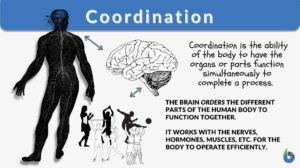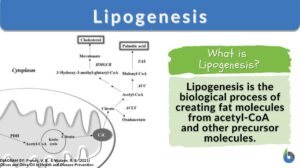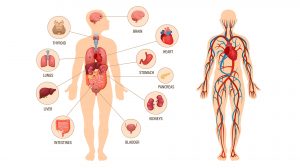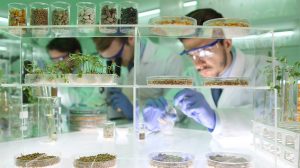Search Results for: homeostasis
Homeostasis
Homeostasis is the tendency not to stray from the range of favorable or ideal internal conditions. Such conditions must be... Read More
Physiological Homeostasis
In animals such as ourselves, the internal environment of our bodies must have certain conditions within tolerable limits to... Read More
An introduction to Homeostasis
Researched and Written by Jonjo MinnsSubmitted to biologyonline.com on February 25, 2009.Published in biologyonline.com... Read More
Feedback mechanism
Feedback Mechanism Definition What is a feedback mechanism? A feedback mechanism is a physiological regulation system in a... Read More
Homeostasis of Organism Water Regulation
Osmoregulation Osmoregulation is the regulation of water concentrations in the bloodstream, effectively controlling the... Read More
Equilibrium
Equilibrium Definition In Biology Equilibrium refers to the state of balance and stability. In biology, equilibrium is... Read More
Positive feedback
Positive Feedback Definition Each mechanism of the body like temperature, blood pressure, and levels of specific nutrients... Read More
Sugar Homeostasis
Blood Sugar Regulation As described in Cell Biology tutorials, the body requires volumes of glucose in order to create ATP.... Read More
Physiological adaptation
If we look over evolutionary history, we find that it’s neither the most genius and intelligent nor the strongest and the... Read More
Chondroblast
There are two forms of cells in cartilage: chondroblasts and chondrocytes. The chondroblasts are cells that secrete the... Read More
Mitochondrion
Mitochondrion Definition What are mitochondria? The term “mitochondrion” comes from the two words of the Greek... Read More
Smooth endoplasmic reticulum
Smooth Endoplasmic Reticulum Definition Smooth endoplasmic reticulum (sER) is part of or a region in the endoplasmic... Read More
Rough endoplasmic reticulum
Rough Endoplasmic Reticulum Definition The rough endoplasmic reticulum (rough ER or rER) is a membrane-bound organelle... Read More
Hyperosmotic
Hyperosmotic Definition What is hyperosmotic? The word hyperosmotic is derived from two Greek words: 'hyper', meaning... Read More
Living things
Living Things Definition A living thing pertains to any organism or a life form that possesses or shows the characteristics... Read More
Endoplasmic reticulum
Endoplasmic Reticulum Definition The endoplasmic reticulum is a membrane-bound organelle in cells of eukaryotic cells... Read More
Osseous tissue
What Is Bone Or Osseous Tissue? Osseous tissue is the structure providing, hard and mineralized connective tissues. Osseous... Read More
Coordination
Coordination Definition When a person hears the word coordination, they think of order, organization, or even managing... Read More
Integumentary system
Integumentary System Definition The integumentary system is the outermost layer of the body. The animal body, in... Read More
Lipogenesis
Lipogenesis Definition Lipogenesis is the process of producing lipid or fat to store biochemical energy for later metabolic... Read More
Homeostatic Mechanisms and Cellular Communication
Homeostasis is the relatively stable conditions of the internal environment that result from compensatory regulatory... Read More
The Human Physiology
Physiology is the study of how living organisms function. Thus, human physiology deals specifically with the physiological... Read More
Body fluid
Body Fluids Definition What is body fluid? Literally, body fluid is the fluid of the body. The adult human body is ~50-60%... Read More
Phagocytosis
Phagocytosis Definition Phagocytosis is a basic physiological cellular process wherein a cell ingests a solid particle... Read More
Characteristic
Characteristics Definition We can define characteristics as qualities or features that describe the distinctive nature or... Read More
Regulation of Biological Systems
Regulation of Biological Systems tutorials are focused on the modulation of biological systems from cell to population... Read More
Homeostatic equilibrium
Definition noun (1) The tendency of an organism or a cell to regulate its internal conditions, usually by a system of... Read More
Fluid mosaic model
Fluid Mosaic Model Definition What is the fluid mosaic model? The fluid mosaic model is a three-dimensional representation... Read More
Chronobiology
Chronobiology Definition Chronobiology is a branch of biology that studies time-related phenomena (e.g., biological... Read More
Glycocalyx
What is the Glycocalyx? The glycocalyx is a polysaccharide-based gel-like, highly hydrous cellular thin layer, covering... Read More

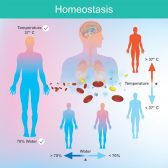


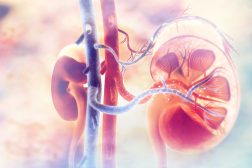


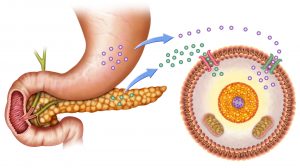


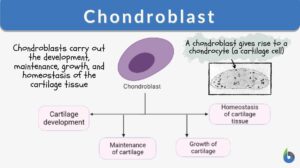







![Biology n., [baɪˈɑlədʒi] Definition: scientific study of life](https://www.biologyonline.com/wp-content/uploads/2021/12/biology-definition-and-branches-of-biology-300x168.jpg)


